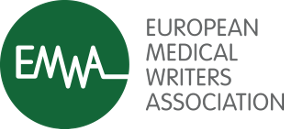About the AI Working Group
The medical writing landscape is undergoing a seismic shift with the advent of artificial intelligence (AI). While AI holds unprecedented promise for automating processes and analysing data at scale, it is crucial to approach this technology with caution.
The EMWA AI Working Group focuses on providing an overview of the AI landscape for our members - its opportunities, future potential, ethical framework, risks, and limitations. It is important to understand the impact that AI will have on our roles as medical writers and the AI Working Group will actively discuss how we will address this transition in our profession.
Tools like ChatGPT use advanced machine learning (ML) algorithms and natural language processing (NLP) to generate human-like responses based on analysed input and learned language patterns. Other tools are targeted to specific writing, design, literature review, translation, or editing tasks. All of these use ML that enables computers to learn and improve from data without being explicitly programmed.
AI large language models (LLM) and generative pre-trained transformer (GPT) models remain unreliable and prone to hallucinations and inaccurate outputs. Therefore, all output generated by AI requires meticulous validation to mitigate risks associated with misinterpretation or inaccuracy. Significant concerns remain regarding copyright infringement, data protection, and threats to privacy and security.
We must all remain vigilant and exercise adequate due diligence when incorporating AI tools into our work. Use of AI-generated text should be declared, verified, and cross-referenced with established medical literature and guidelines.
The EMWA AI Working Group is committed to keeping abreast of all the new technological advancements along with carefully assessing the risks and limitations. With your input we will be conducting activities, such as:
- Educational and informative presentations, expert seminars, and discussion groups during EMWA conferences
- Webinars throughout the year on specific AI-related topics
- Meet & Share discussions through the Special Interest Groups
- Maintaining a taxonomy and classification of AI tools
- Collaboratively testing and monitoring available AI tools to identify those suitable for our profession whilst highlighting any context, bias, or fairness issues
- Determine a framework for data privacy and security measures to protect sensitive information so that medical writers can assess which tools to use
- Collaborate with experts to establish ethical guidelines and frameworks for the responsible use of AI
Please join us in harnessing the power of AI to transform our profession while proactively mitigating risks and ensuring ethical practices.
Contact info@emwa.org for further details.
Members of the AI working group are:
|
Slavka Baronikova, PhD |
Scientific Publications Head at Galapagos NV, a trained clinical pharmacist with a PhD in pharmacognosy. For over a decade, she worked in the academic world isolating and testing active anti-cancer and anti-HIV compounds from medicinal plants, and teaching university students. In 2003, she moved to the pharmaceutical industry, mainly working in clinical research and then, later on, in the scientific communication field. |
|
|
Dr Namrata Singh |
|
A paediatrician and a medical writer. She is the founder and director at Turacoz Group about a decade back and works with industry and academic institutes to offer solutions to convey their scientific message to the target audiences. She has special interest in adapting to new technological advancements and mentoring aspiring medical writers. |
|
Sarah Tilly BSc, PGCert, (eMBA) |
|
Founder and Director of Azur Health Science, a regulatory writing and communications consultancy based in France. Having been medical writing since 2006, she believes that everyone has their own, unique contribution to give to our industry which necessitates understanding how we can adapt to and embrace current trends and challenges. |
|
Martin Delahunty, BA (NatSci), MBA |
|
Founder and Director of Inspiring STEM Consulting which provides publishing strategy, business development and training services to academic publishers, universities, pharmaceutical companies and supporting technology services. A core focus is open science publishing principles and best practices. |





